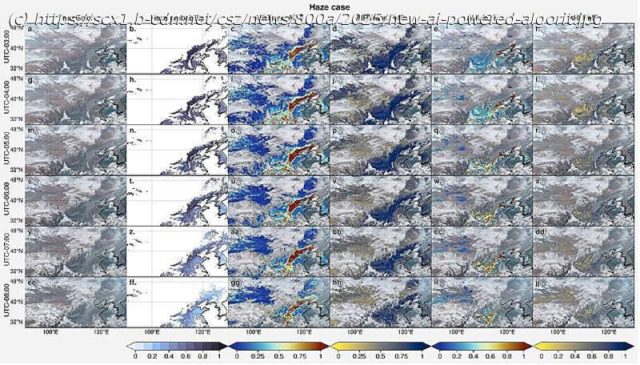A research team led by Prof. Shi Chong from the Aerospace Information Research Institute (AIR) of the Chinese Academy of Sciences, in collaboration with Japanese scientists, has made a significant advancement in satellite-based air quality monitoring.
A research team led by Prof. Shi Chong from the Aerospace Information Research Institute (AIR) of the Chinese Academy of Sciences, in collaboration with Japanese scientists, has made a significant advancement in satellite-based air quality monitoring.
They have developed AIRTrans, an innovative algorithm that greatly improves the accuracy and efficiency of retrieving key aerosol properties from multispectral satellite observations. The study is published in the journal Remote Sensing of Environment.
Aerosols—tiny particles suspended in the atmosphere—play a crucial role in air pollution, human health, and climate change. Two important indicators for studying aerosols are aerosol optical thickness (AOT), which measures the concentration of particles in the air, and the fine-mode fraction (FMF), which indicates the proportion of small particles, such as those from vehicle emissions or industrial processes.






